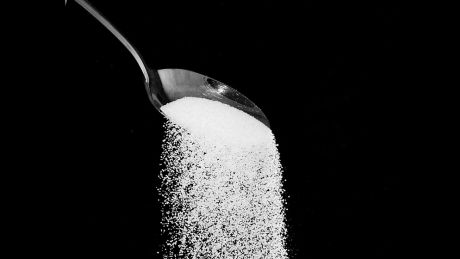Sugar Addiction and How to Stop Eating Sugar
Is there really such a thing as sugar addiction? And how can you cut down on the sweet stuff?

Sugar is on almost everyone’s hitlist, with the government even stepping in to take action against it in its last budget with a tax on soft drinks that contain too much added sugar. However, that tax is two years away and sugar will continue to be responsible for diseases such as obesity, diabetes and cardiovascular issues, so to get some advice on how people can kick their sugar habit now, Coach began by speaking to British Dietetics Association spokesperson Priya Tew.
Is sugar genuinely addictive?
“Addiction is a strong word, so I wouldn’t call sugar addictive. However, sugar has been shown to stimulate the areas of the brain that are linked to addiction, the opiate receptors and the reward centre. So some people are more susceptible to this and may find they crave sugar more than others.”
Why do we crave sugar at certain times of the day, like the mid-afternoon snack?
“This is due to habit for some people, tiredness for others and sometimes thirst. Think about these things first to work out if you are actually hungry or not. Try having a drink, [and] if you still want something then choose a healthy snack that includes protein to help keep you satiated. Peanut butter on toast or hummus with vegetables sticks, for example.”
How can you recognise what food has sugar in it?
“Reading the list of ingredients on a food label will help with this – however, sugar can be found in a variety of disguises. Syrups, glucose, sucrose, fructose, honey and agave are all forms of sugar. It is helpful to remember that there are added sugars, and sugars that are found naturally as part of a food. It is the added sugars that we want to be reducing – but not cutting out [all sugars] completely. So sugar that is naturally found in fruit, natural yogurts and milk is OK.”
RECOMMENDED: Is Sugar Really so Bad for My Health
How To Stop Eating Sugar
We’re hardwired to eat it but you can break your habit, says Dr Michael Fenster, cardiologist, chef and author of The Fallacy Of The Calorie.
The modern Western diet is a problem. Across the US, Europe and lately even Eastern countries such as Japan and China, food is processed to the point where it’s just layers of sugar, salt and fat. Our ancestors needed these ingredients for survival and evolved to hunt them down. But when high-fructose corn syrup became readily and cheaply available in the 1970s we started gorging on sugar as never before. It’s addictive and now HFCS is snuck into lots of foods.
Get the Coach Newsletter
Sign up for workout ideas, training advice, reviews of the latest gear and more.
The good news is that it’s possible to train yourself to overcome your sugar cravings. And you’re already on the right path. Now that you know you’re hardwired to seek out sugar, you can start taking the necessary steps to wean yourself off it.
First, keep it natural. Relying on zero-calorie sweeteners is like making a deal with the devil. Artificial sweeteners can still result in cravings for sugar. In addition, some studies suggest that while we may not absorb the chemicals in sweeteners, they can affect our gut bacteria and cause abnormalities that result in weight gain and the development of diabetes.
Next, redeem yourself. If you need to sweeten your coffee, fruit or porridge, use honey. Sugar alternatives such as honey, molasses or maple syrup have some redeeming nutritional value, but pure sucrose is nutritionally empty.
For an energy boost reach for nature’s energy bar: fruit. Avoid expensive fruit and cereal bars that often contain hidden amounts of wheat gluten and HFCS.
Not eating processed food is also a sure way of dodging hidden ingredients that will scupper your efforts to kick your sugar habit. So buy fresh meat instead of vacuum-packed slabs of ham and salami.
Finally, keep your gut happy. Our gut bacteria produce around 10% of the energy we use, but poor ingredients can make them underperform. The side effect is low energy, which can have you reaching for a sugary pick-me-up. It’s a vicious cycle.
Probiotics are extremely important for intestinal, metabolic and overall good health, but supplementation can be expensive. A low-cost solution: get pickled. Eat naturally fermented foods with live active cultures such as yogurts, sauerkraut, kefir, pickles, miso and kimchi. Nature is pretty smart. We really don’t need to alter a lot of what she’s given us.
From 2008 to 2018, Joel worked for Men's Fitness, which predated, and then shared a website with, Coach. Though he spent years running the hills of Bath, he’s since ditched his trainers for a succession of Converse high-tops, since they’re better suited to his love of pulling vans, lifting cars, and hefting logs in a succession of strongman competitions.
- Andre JacksonFormer web editor

